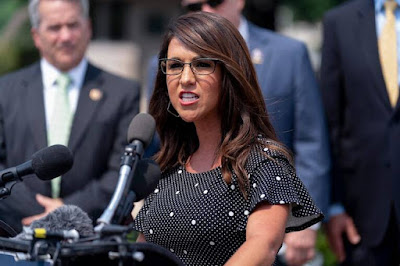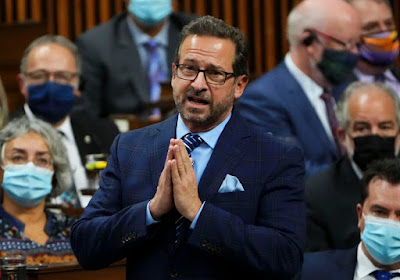Last week, a lot of Americans spent time giving thanks. But Lauren Boebert was not in a thankful mood. Dana Milbank writes:
While the rest of the country paused to express gratitude for our many blessings. Rep. Lauren Boebert of Colorado, a QAnon-admiring Republican, referred to Rep. Ilhan Omar (D-Minn.), who is Muslim, as part of a “Jihad Squad” and told an audience a false story of a worried Capitol Police officer chasing down Omar. Boebert claimed she said: “Well, she doesn’t have a backpack. We should be fine.”
Boebert at first apologized “to anyone in the Muslim community I offended” with her Muslims-are-terrorists message. Nominal House Republican Leader Kevin McCarthy (Calif.) issued a statement that avoided criticism of Boebert’s words. And Rep. Marjorie Taylor Greene (R-Ga.), whose support McCarthy needs to remain GOP leader, criticized Boebert — for apologizing. “Never apologize to Islamic terrorist sympathizers,” she wrote, repeating the “Jihad Squad” phrase.
After rejecting Omar’s request for a public apology on Monday, Boebert released a video expanding the original slander. “I will continue to fearlessly put America first, never sympathizing with terrorists,” Boebert said. “Unfortunately, Ilhan can’t say the same thing.”
There have always been political nutbars:
There have always been clowns like Greene, Gosar and Boebert. Over the past two decades, the Rev. Jerry Falwell referred to the prophet Mohammed as a “terrorist,” the Rev. Franklin Graham called Islam “evil,” Christian broadcaster Pat Robertson likened Muslims to Hitler, and conservative activist Paul Weyrich condemned [George W.] Bush’s “constant promotion of Islam as a religion of peace and tolerance” because “it is neither.”
But you'll notice that all of the aforementioned were -- or are -- Republicans. Now they control the party.
Image: The Washington Post
























